Bobby
Braddock

-
Inducted2011
-
Born
August 5, 1940
-
Birthplace
Lakeland, Florida
One of country music’s most prolific and successful songwriters, Bobby Braddock has earned #1 songs as a songwriter in five different decades.
Florida Roots
Born Robert Valentine Braddock in Lakeland, Florida, on August 5, 1940, Braddock is the son of a successful citrus grower who worked in rural Auburndale before Disney World opened in the area. At age eight, Braddock wrote his first song and performed it at a piano recital. He later played alto saxophone in the Auburndale High School marching band.
Working his first professional shows in the late 1950s and early 1960s, Braddock played piano in local rock & roll combos including Big John’s Untouchables, “The Rockingest Group in the South.” Braddock colorfully describes those dues-paying early years in the first volume of his memoirs, 2007’s Down in Orburndale: A Songwriter’s Youth in Old Florida.
In 1961, singer Dot Anderson made the first recording of one of Braddock’s songs, “Walkin’ Papers,” released on tiny, Auburndale-based D. J. Records. Upon moving to Nashville in 1964, Braddock worked at Hewgley’s Music Store but was fired when his apron got caught in the trumpet-polishing machine. He soon joined country star Marty Robbins’s road band, and he enjoyed his first taste of success as a songwriter when Robbins recorded “While You’re Dancing,” which reached #21 in 1965.
Songs
00:00 / 00:00
00:00 / 00:00
00:00 / 00:00
Becoming a Nashville Songwriter
Braddock signed as a staff writer to Nashville’s Tree Publishing Company (now Sony Music Publishing) in 1966 and has remained with the firm ever since. Within a year he supplied the Statler Brothers with the Top Ten hits “Ruthless” and “You Can’t Have Your Kate and Edith, Too.”
Beginning in the late 1960s, Braddock recorded for various labels, with modest sales results. His 1983 RCA album Hardpore Cornography displays his offbeat sense of humor.
Braddock scored his first #1 hit with “D-I-V-O-R-C-E”—co-written with Curly Putman—when Tammy Wynette recorded the melancholy number for Epic/Columbia Records producer Billy Sherrill in 1968. Braddock parlayed his close association with Sherrill into more landmark hits during the 1970s and 1980s: Wynette reached the Top Ten again with Braddock’s “Womanhood” and “They Call It Making Love,” while George Jones achieved chart success with “Her Name Is . . .” and “Nothing Ever Hurt Me (Half as Bad as Losing You).”
Jones initially expressed concern to Sherrill that “He Stopped Loving Her Today” might be too sad for radio and his fans, but the ballad became Jones’s first million-seller, earned the singer Grammy and Country Music Association awards, and helped re-establish him as a dominant force at country radio. Braddock and co-writer Putman won the CMA’s Song of the Year award in both 1980 and 1981 for “He Stopped Loving Her Today,” too, and the song was later was named Country Song of the Century by trade publication Radio & Records.
Also for Sherrill, Jones and Wynette paired on Braddock’s “(We’re Not) the Jet Set” and “Golden Ring,” the latter co-written by Rafe Van Hoy. Lacy J. Dalton earned her first Top Ten with “Hard Times,” and teenaged Tanya Tucker hit with “I Believe the South Is Gonna Rise Again.” Johnny Duncan went #1 with “Thinkin’ of a Rendezvous,” one of many popular tunes that Braddock wrote with Sonny Throckmorton.
Braddock’s other significant credits from this period include “Did You Ever” (Charlie Louvin and Melba Montgomery), “Peanuts and Diamonds” (Bill Anderson), “Come on In” (Jerry Lee Lewis), “Fadin’ In, Fadin’ Out” (Tommy Overstreet), “Something to Brag About” (Willie Nelson and Mary Kay Place), and “I Feel Like Loving You Again” (T. G. Sheppard).
“He Stopped Loving Her Today,” written by Bobby Braddock and co-writer Curly Putman, became the first million-seller for George Jones and helped re-establish him as a dominant force at country radio.
Videos
“People Are Crazy,” written with Troy Jones and a #1 song for Billy Currington in 2009
Country Music Hall of Fame and Museum Songwriter Session, 2020
“He Stopped Loving Her Today,” written with Curly Putman and a #1 song for George Jones in 1980
Country Music Hall of Fame and Museum Songwriter Session, 2020
Photos
-
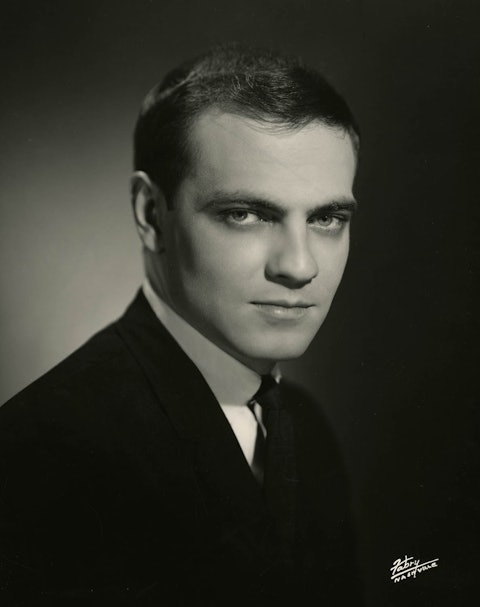
Bobby Braddock, 1968. Photo by Walden S. Fabry Studios.
-
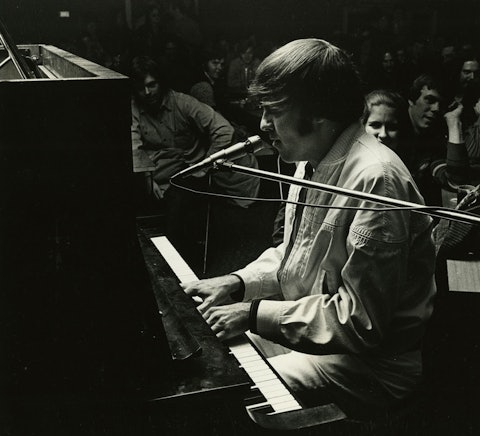
Bobby Braddock onstage, performing his song “D-I-V-O-R-C-E,” popularized by Tammy Wynette, 1971. Photo by Slick Lawson.
-
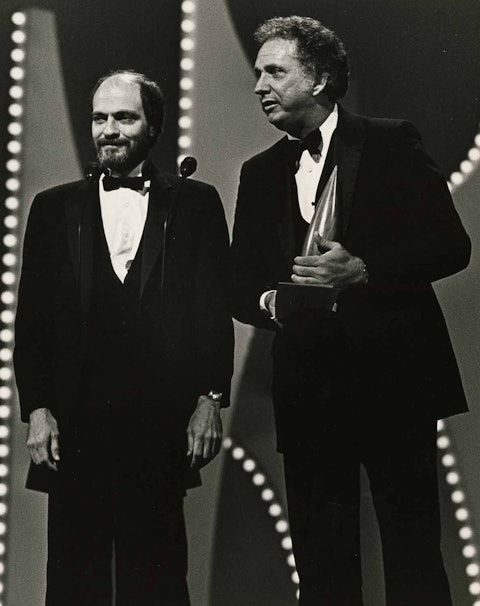
Bobby Braddock and Curly Putman accept the Country Music Association's Song of the Year award, 1981.
-
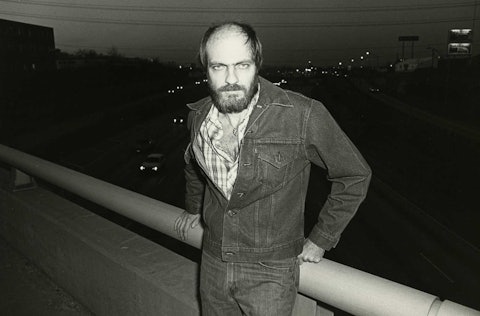
Bobby Braddock, 1970s.
-
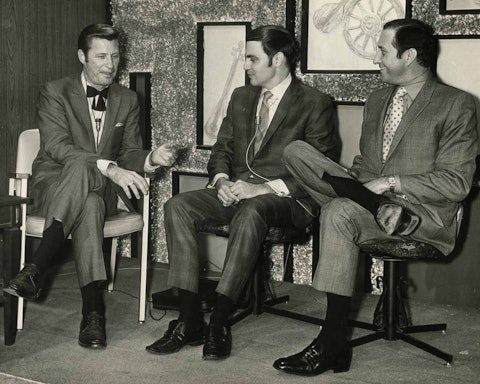
From left: WMTS disc jockey Doc Holiday, Bobby Braddock, and Buddy Killen on the Holiday Country radio show, 1969.
-
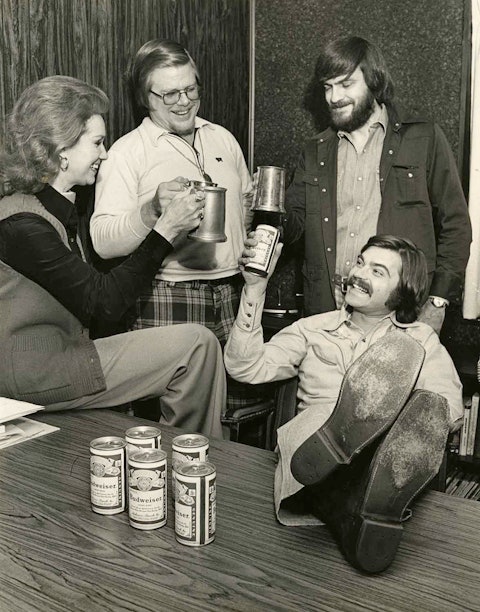
From left: Country singer Jan Howard, Sound Shop Studios President Craig Deitschmann, Bobby Braddock, and producer Craig McGowan on the set of a Budweiser commercial, 1976.
-
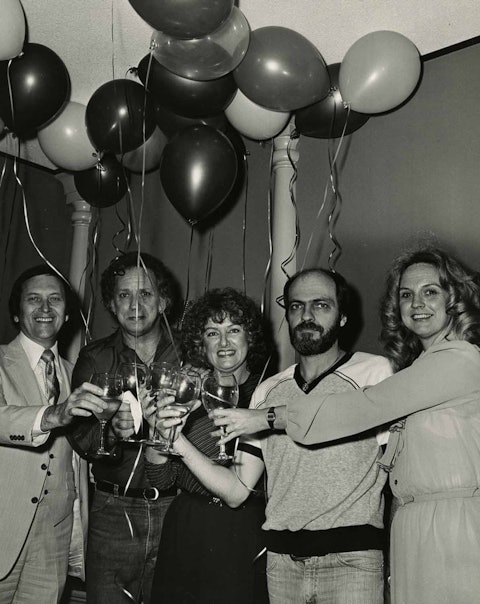
From left: Buddy Killen, Curly Putman, Frances Preston, Bobby Braddock, and Donna Hilley at a Tree Publishing Company party in honor of Braddock and Putman’s “He Stopped Loving Her Today” winning three awards, 1981.
-

Bobby Braddock, 2011.
The Hits Keep on Coming
In 1981, Braddock was inducted into the Nashville Songwriters Hall of Fame. The following year he scored Top Ten hits with John Anderson’s “Would You Catch a Falling Star” and John Conlee’s “I Don’t Remember Loving You,” the latter co-written by Harlan Howard. Months later, Sheppard and duet partner Karen Brooks reached #1 with “Faking Love,” which Braddock crafted with Matraca Berg at the outset of her distinguished songwriting career.
A decade later, Braddock teamed again with Van Hoy to land a Top Five hit with Mark Chesnutt’s “Old Flames Have New Names.” Tracy Lawrence hit #1 with Braddock’s “Texas Tornado” in 1995 and soon repeated the success with “Time Marches On,” which netted Braddock CMA Song of the Year nominations in both 1996 and 1997.
Showing no signs of slowing down in the twenty-first century, Braddock produced Blake Shelton’s “Austin,” “The Baby,” “Some Beach,” and other early hits. As a writer, Braddock supplied Toby Keith with the swaggering country-rap number “I Wanna Talk About Me,” which spent five weeks at #1 in 2001. Co-written by Braddock and Troy Jones, “People Are Crazy” topped the charts for singer Billy Currington in 2009. The composition received a Grammy nomination for Best Country Song and earned Braddock his sixth CMA Song of the Year nomination.
In 2010, BMI honored Braddock for his five decades of writing country hits, citing nine of his songs that have been played on the radio from one to three million times. One year later, he became the first inductee in the Country Music Hall of Fame’s new songwriter category.
In 2015, Braddock both joined the Songwriters Hall of Fame and published his second memoir, Bobby Braddock: A Life on Nashville’s Music Row. Another book by Braddock, Country Music’s Greatest Lines: Lyrics, Stories & Sketches from American Classics, arrived in 2020.
— Kent Henderson
Adapted from the Country Music Hall of Fame® and Museum’s Encyclopedia of Country Music, published by Oxford University Press





